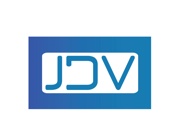
There are 10 Companies in Germany
that provide Hardware Services!
Germany is home to the single largest IT market in Europe, accounting for around a quarter of the European market by value. Increased business demand for smart data products and services in the cloud is driving domestic IT market growth, as Germany embarks on a far-reaching program of digitalization that promises to transform the economy.
Discover Top IT Companies in Germany specialized in Hardware and other related services. Find the best IT service providers for your projects.
Hardware service is an aspect of IT management that specifically deals with the physical components of information technology. The process encompasses hardware acquisition, continuous maintenance throughout its lifespan, and responsible disposal of outdated parts. Expert hardware asset managers collaborate with various departments and stakeholders across all levels within an organization. According to recent statistics, up to 30% of the total IT budget is spent on hardware, software, and related maintenance and support expenses.
Handpicked companies • No obligation to hire • 100% risk-free
Featured Companies in Germany
This month, the following Hardware companies managed to provide an outstanding service and support. It's worth taking a look.
Your certified Magento and web design agency in Berlin! We offer customized, powerful and cost-efficient e-commerce solutions for your company.
Managed IT Services for your success. European excellence. Reliable IT that creates value.
Explore Top Hardware Companies in Germany
Kulimo bietet professionelles, individuelles Webdesign, Webentwicklung und Business App-Entwicklung in Berlin.
360° Business solutions provider
A premier provider of tailored digital solutions, offering innovative app development services that cater to diverse industries worldwide.
Aqlix IT Solutions Pvt Ltd offers world-class IT services including full-stack development, customized software solutions and mobile apps.
Filter Hardware Companies in Germany by Cities
Find the right tech company near you or from a specific city. Some of the best companies might be located in smaller cities.
Find more Hardware companies around the world
TechBehemoths is the world's most advanced and user-friendly platform to match IT Companies with real clients without hustle.
The German ICT Industry: Data, Companies and Predictions
Germany is home to the single largest IT market in Europe, accounting for around a quarter of the European market by value. Innovation comes as standard in an industry characterized by a thriving of small and medium-sized enterprises. Increased business demand for smart data products and services in the cloud is driving domestic IT market growth, as Germany embarks on a far-reaching program of digitalization that promises to transform the economy.
According to Payscale, the average salary of a web developer in Germany is estimated at around 3,500 EUR/mo - one of the highest in Europe, which defines the high demand on the market for digital services and products, but it also reveals the high-quality services companies based in Germany provide. According to Statista, the IT industry market in Germany is predicted to reach $75.48 billion by 2025, with IT Outsourcing dominating this market, reaching $32.15 billion. It has a CAGR for 2025-2030 of 3.33%, expecting a market volume of $88.94 billion by 2030. Germany is a leader in IT services, prioritizing innovation, and delivers high quality services.
Why Should You Work With German IT Companies?
Needless to say that the presence of tech giants in Germany, and their continuous investment in the local IT environment, is one of the basic indicators of a healthy IT industry. But, most importantly, the fundamentals of the IT industry in Germany are small and medium businesses that face tough competition, which in turn stimulates the growth and development of the entire IT ecosystem. Based on a report from the International Trade Administration, in 2025, the number of IT companies in Germany was above 100K, and Berlin only the most developed digital hub, was the home of 38K+ IT companies.
However, the main reasons for working with German IT companies remain a good business culture, rich experience, and skilled professionals.
What You Should Be Aware of When Working With a German IT Company
Despite the benefits of working with German companies, there are several factors that you should be aware of. First of all, the huge number of companies creates difficulties when choosing only one. It is possible to experience psychological fatigue due to the wide variety of good offers you may receive from German or German-based agencies. Despite these challenges, hiring a IT service provider from Germany can bring lower costs than other people expect, talented tech professionals, good education system, stable business ecosystem, productive tech experts, and attention to details.
Speaking of the differences between German and German-based IT companies, this is another challenge to make the difference in which type of company you contacted. There is a performance difference between the two types of companies mentioned above, but not always in favor of the first one.
Are German Companies Reliable?
German IT companies have probably the best reputation in Europe, especially due to the high number of projects they attract, but also based on the country’s business reputation in general. Even though more foreign companies from countries with questionable reputations relocated or declared themselves as German, the overall rating didn’t go down, but on the contrary. This may be explained by the fact that foreign companies would rather adapt to German rules and improve their reputation as well.
How the German IT Industry Relates to the Neighboring Countries
Having ¼ of the European market value, the German IT industry is considered to be the most developed, with the UK and France in second and third position, far behind it. In 2025, Germany holds approximately 19.7% of the market share, followed by the UK at 16.2% and France at 12%. Both countries have robust tech environments that dominates the European continent, with Germany that leads in high-tech industries, and the UK as a prominent tech economy.
What is Hardware and what are its benefits for your projects?
Hardware service is an aspect of IT management that specifically deals with the physical components of information technology. The process encompasses hardware acquisition, continuous maintenance throughout its lifespan, and responsible disposal of outdated parts. Expert hardware asset managers collaborate with various departments and stakeholders across all levels within an organization. According to recent statistics, up to 30% of the total IT budget is spent on hardware, software, and related maintenance and support expenses.
Primary Categories of Hardware Asset
Hardware asset are generally grouped into four primary categories:
- End-user devices - Employees use a variety of devices in their everyday work, including computers, smartphones, tablets, SIM cards, and other similar gadgets.
- Network and telecom hardware serve as support equipment for facilitating both digital and analogue communication. This category includes various devices such as routers, load balancers, switches, as well as telephone and video conferencing systems.
- Data-center equipment are hardware that enables the effective functioning of data centers. This includes servers, utilities, and security devices.
- Peripherals are essential equipment that provides support in modern office environments. They come in various forms such as scanners, printers, monitors, keyboards, headsets, projectors, and even cables and adaptors.
What are the Benefits of Hardware Services
Business hardware may not always appear to be a secure investment. It tends to lose value rapidly and require regular maintenance and occasional repairs. However, implementing effective hardware asset management can help reduce these downsides.
The advantages of hardware services include the following:
-
Improved loss prevention - Loss prevention is enhanced through improved accuracy in hardware catalogues. These catalogues enable effective tracking of equipment, identification of missing parts, and mitigation of risks. Additionally, asset tagging, ownership records, and location tracking facilitate the identification of idle assets, ultimately reducing theft risk.
-
Enhanced productivity - Implementing a strategy for managing hardware assets, employees are able to efficiently handle equipment, prevent inefficient processes, and automate procedures. This ensures accurate inventory and distribution while also preventing asset issues before they arise.
-
Optimized usage - Effective management practices for hardware and well-structured maintenance schedules ensure the proper utilization of company equipment. Also, accurate asset inventories help prevent unnecessary spending, ultimately increasing the value of hardware investments.
-
Increased security and compliance - Managing hardware assets offers a thorough inventory of all hardware assets and assists security teams in securing hidden assets, spotting vulnerabilities, and verifying policy compliance.
-
More-efficient lifecycle management - Businesses benefit from HAM's comprehensive asset lifecycle control, which facilitates informed decision-making for asset managers regarding vendor contracts, servicing options, and replacements.
- Cost savings - Here are a few ways that managing hardware assets can help your company save money:
- Lower maintenance expenses;
- Hardware budgets that are more precise;
- Minimal hand work;
- Less hardware expenditure;
- More effective disposal methods.
When organizations invest in effective hardware asset management, they gain lots of advantages. These benefits include saving time and money, as top-quality HAM systems and strategies quickly prove their worth.
Are you in search of a hardware asset service provider? Your search ends here with TechBehemoths! Our platform has a vast selection of over 323 worldwide companies that provide effective hardware asset management.
To make your decision easier you can use smart filters based on location, price, and reviews. In case you require additional help, simply submit your project and our team will assist you in finding the ideal service provider for your specific needs.









